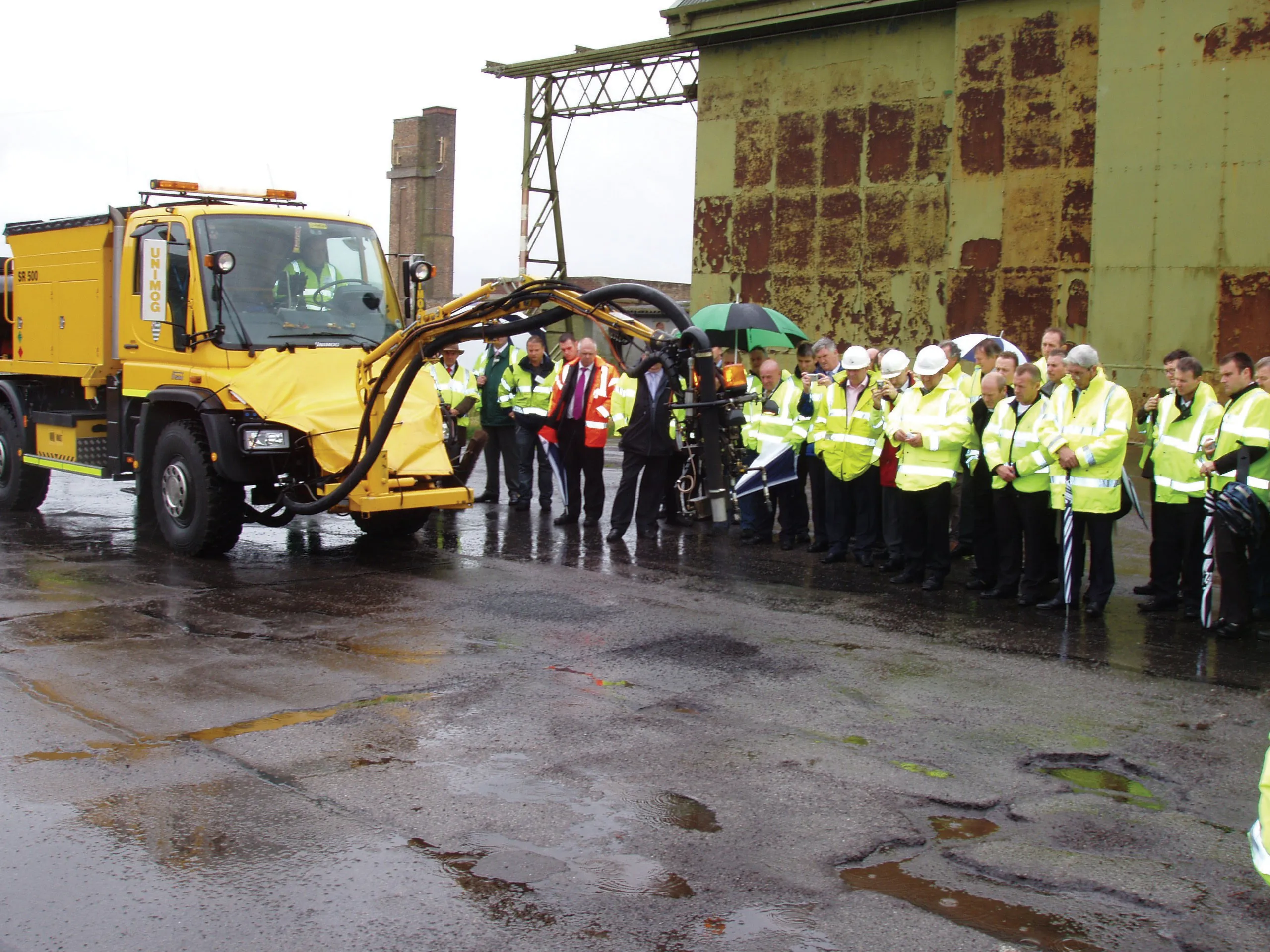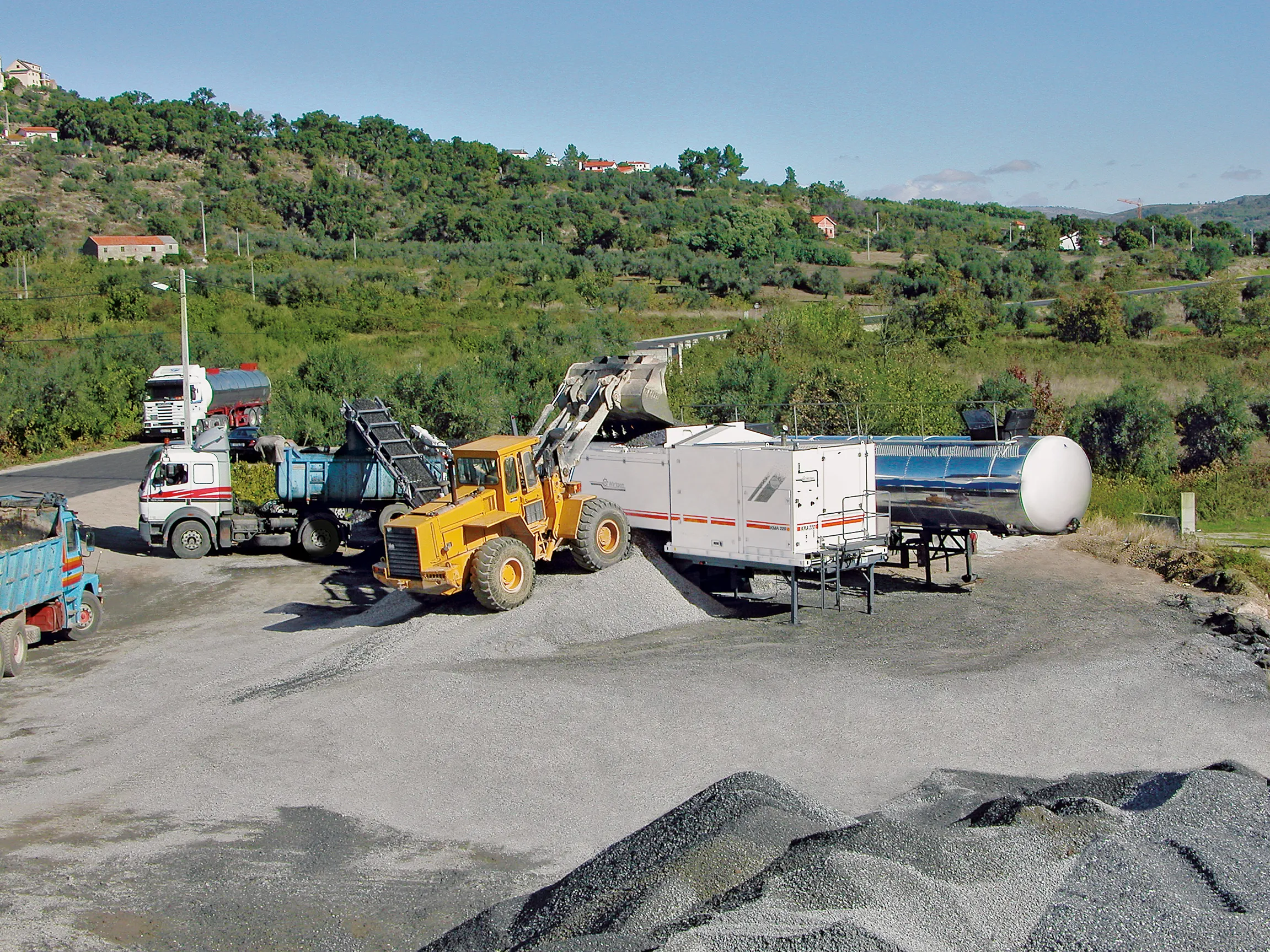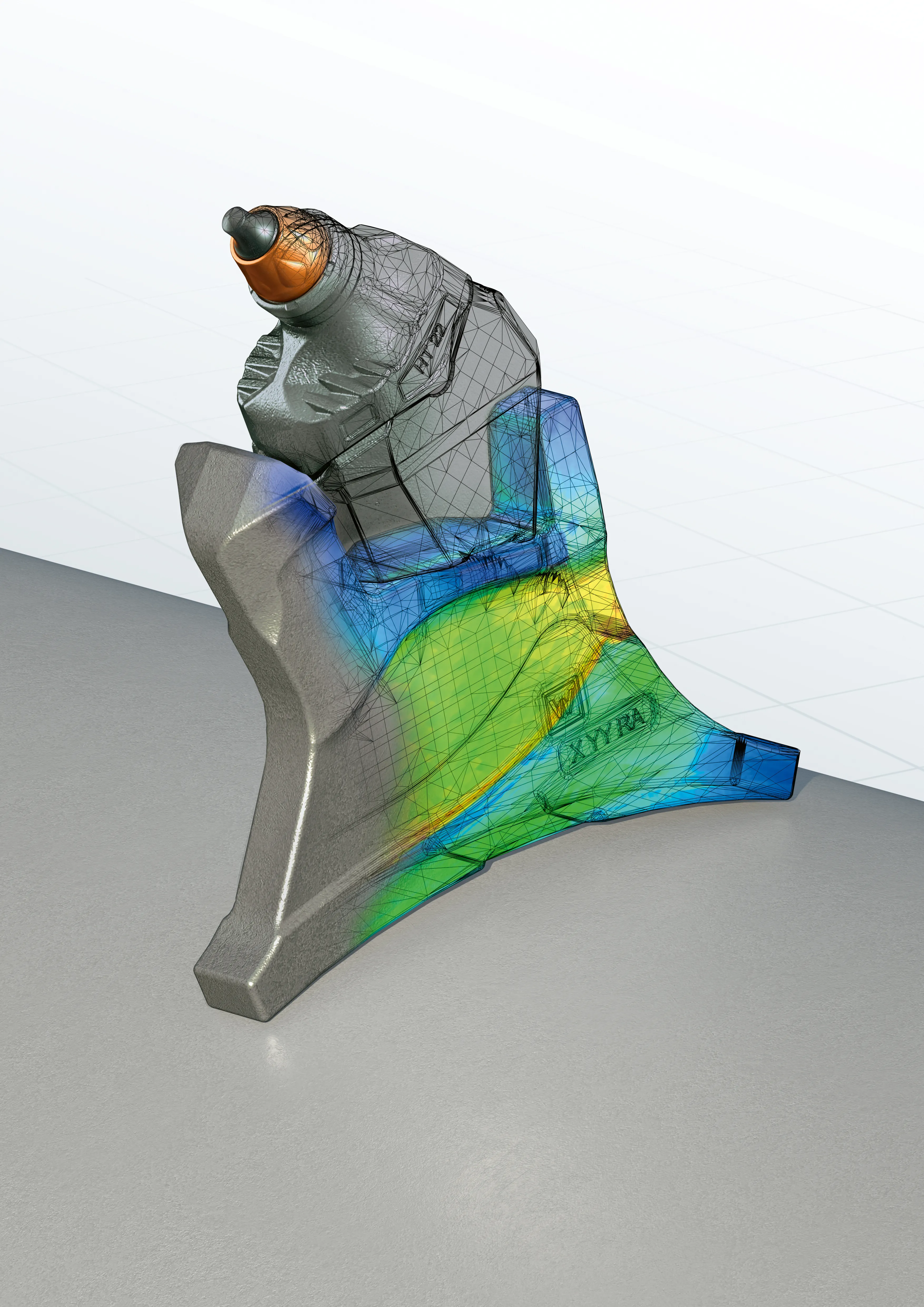VSS Macropaver is well known worldwide for offering customers individualised solutions for their emulsion blending needs.
March 16, 2012
Read time: 6 mins

VSS Macropaver is well known worldwide for offering customers individualised solutions for their emulsion blending needs.
Indeed, the company says that for more than 50 years it has been among the leaders in pavement preservation, and this includes contracting in slurry seal, microsurfacing, Macro-Surfacing, chip seal, hot mix, crack sealing, and many other techniques.It also offers its expertise in asphalt, binders and emulsifiers, with each of its custom VSS Emultech system being built to a customer's specific plant layout, design and construction needs and with the local market in mind.
"VSS has the up-to-date technology, operations and application skills to commission and assist in the marketing and application of a company's products. We can help with a project from beginning to end or advise and assist in selected areas," said Doug Hogue,
VSS emulsion manufacturing systems are available in 8, 16, 25 and 40ton/hr (7.25, 14.5, 22.68 and 36.28tonne/hr) sizes, and it offers a wide range of highly mobile solutions for batch, continuous or semi-continuous emulsion production: plants are engineered to precisely produce the customers' desired formulation needs and, are fully equipped to produce anionic, cationic and non-ionic emulsions.
"Plants are available with an optional latex injection system and/or heat exchanger to produce polymer-based emulsions," said the company.
"The system is fully plumbed and flanged for immediate adaptability with a customer's tank farm and plant plumbing. The unit is fully wired and ready for installation. Emultech systems are built onto a rigid skid-mounted, rust-resistant steel frame and can be mounted in 20ft (6.1m) or 40ft (12.2m). containers." At the heart of the plant is a state-of-the-art, colloid mill (a machine that is used to reduce the particle size of a solid in suspension in a liquid, or to reduce the droplet size of a liquid suspended in another liquid. This is done by applying high levels of hydraulic shear to the process liquid. It is frequently used to increase the stability of suspensions and emulsions).
The VSS mill is stainless steel, high-shear, rotor and stator design and features an adjustable gap for precise particle sizing. It is jacketed for product heating and cooling.
"These mills can make excellent quality emulsions with difficult materials and hard or polymer modified asphalt," says the company.
VSS also manufactures skid-mounted soap concentrate and dilute systems to service the emulsion plants, which are capable of operating in either a batch or semi-continuous mode. Necessary tanks, valves and plumbing are supplied depending on the type of system needed.
VSS also manufactures a fully-instrumented laboratory-sized emulsion plant, with a capacity of 30-60 gallons/hr (113.5-227litres/hr), which precisely simulates production for fast, accurate formulation and product development.
In addition, VSS manufactures state-of-the-art asphalt rubber blending systems, its Macropaver high production slurry/microsurfacing machine with outputs of up to 4tons/min (3.63tonnes/min), Minimac, said to be the world's only self-propelled, one-man operated slurry/microsurfacing machine, and Minimac CR-1000, a compact continuous run slurry/microsurfacing machine.
The VSS truck-mounted Macropaver applies all slurry and polymer modified microsurfacings, a cold mixed asphalt, which consists of a graded aggregate, a binder, fines and additives. It is a hard wearing surfacing for pavement preservation and rehabilitation, and is a sort of slurry surfacing but is specialised for situations where very quick trafficking, rut filling or extreme conditions of heat or cold are likely.
Macro-Surfacing is a specialised open-graded cold mixed asphalt, consisting of a single-graded aggregate, a polymer modified binder, fines and other additives. It is similar to slurry surfacing in its application but is for situations where noise reduction, drainage and reduced crack reflectivity are desired, while chip sealing is one of the oldest methods and most successful of road surfacing. In many countries it is used for high volume roads. In US it is used for pavement preservation and rehabilitation.
VSS Macropaver points out that when pavements fail they fail often by cracking. This can be caused by aging and embrittlement, low temperature effects, fatigue, or movements in the base caused by shrinkage or exiting cracks below the pavement surface. In many situations the best way to seal the surface again is by filling the cracks with an elastomeric asphaltic compound. Generally cracks that are 7-15mm are candidates for crack filling. Fatigue cracks are usually an intense pattern and more suited to overall treatments like asphalt rubber chip seals or Cape Seals, which use the advantages of two sealing and rehabilitation methods combined. It is the application of a chip seal followed within a few days by a slurry or microsurfacing.
Crack sealants may be cold or hot pour. Cold crack sealants are emulsion based and usually latex modified. They are suitable for smaller cracks that are not very active. Hot pour crack fillers are generally crumb rubber or SBS modified at high concentrations (25% and 12% respectively). These materials are highly elastomeric and stretch and recover with the movement of the crack.
Road repair patcher
In the UK, Wiltshire County Council is one of the first highways authorities to tackle the big rise in potholes and other roads damage caused by recent heavy rain and floods by using the first one-man operated road repair patcher as its leading weapon.County engineers demonstrated the new machine (and other highways applications) on its fleet of
"During the last few months much of south and central Britain has experienced unprecedented rain, which presents immediate problems across the whole road network," said Graeme Hay, highway maintenance service manager for Wiltshire County Council Environmental Services Department.
"What is less well understood is the consequential damage which occurs when roads have been submerged. This takes the form of potholes and subsidence, both of which become apparent immediately after the water has run off. In some areas the damage appears a month or more after the rain and water has gone. Highway engineers across the country will this year face the prospect of going into the winter with a pothole problem, when normally that nuisance is at its lowest level.
"Clearly the rapid repair of these potholes before the onset of frost is crucial to prevent wholesale deterioration over large areas of the affected roads." The council, using its Schmidt Savalco road repair patcher on a Unimog U500 chassis, has the capability to repair potholes and cracks in a few minutes with minimum traffic disruption. Using conventional processes it would take half an hour to an hour for each pothole.
The repairs involve the application of








